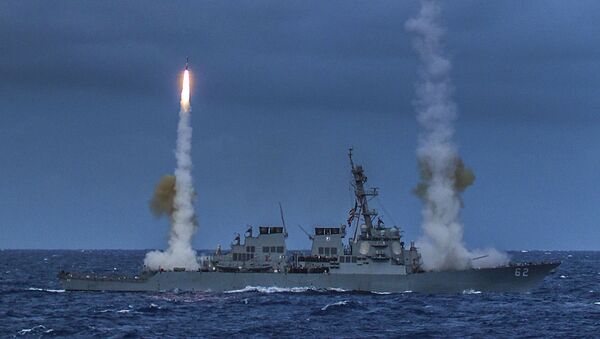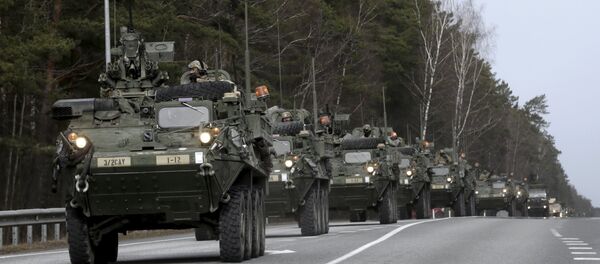On Thursday, US Navy officials speaking on condition of anonymity confirmed Washington’s plans to dispatch more surface ships to bolster the Third Fleet’s deployment in the South China Sea. The movement raises the stakes in America’s provocative containment strategy against Beijing.
Beijing claims sovereignty over much of the South China Sea, a valuable waterway through which roughly 1/3 of the world’s goods are shipped. The waters also contain one of the world’s largest oil and natural gas deposits, with 11 billion barrels of oil and 190 trillion cubic feet of natural gas.
The United States has repeatedly intervened on behalf of several other regional countries, including Malaysia, Vietnam, Brunei, Taiwan, Indonesia, and the Philippines, who hold competing claims. President Obama has called on Xi Jinping to submit to a process laid out in the Law of the Sea Treaty, a treaty Washington is not a signatory to and under which legal experts believe China has an undeniable claim.
US officials have also smeared Beijing with allegations of ‘Chinese aggression’ in the region after China built three airstrips on their land reclamation projects in the contested Spratly archipelago and deployed fighter jets to the Paracel Islands. Without providing evidence, American officials have accused China of militarizing the region by installing ballistic missile systems in the South China Sea, an allegation flatly denied by Beijing.
Beijing counters the assertions by pointing to America’s stated policy of encircling the Communist regime, citing the massive naval exercise underway in the East China Sea and conducted jointly with India’s and Japan’s naval forces, as well as the placement of a missile defense system in South Korea with a range capable of reaching the Chinese mainland.
The Obama administration has not shied away from its focus on limiting China’s potential, beginning with an 'Asian pivot' designed to form a counter-hegemonic alliance of Asian-Pacific countries.
Those efforts, including the controversial TPP trade pact, remain on hold in the face of staunch opposition from US lawmakers, but Washington has also formed unprecedented cooperative defense agreements with Japan and Vietnam.
Beijing officials downplayed the latest American provocation, claiming they do not see why the Obama administration would deploy more ships to a "quiet" situation in the South China Sea, adding that "how the US military uses its taxpayers’ dollars to carry out deployments is its own affair."
Foreign policy analysts believe that despite China’s calm demeanor, hardliners within Beijing continue to gain influence in the face of America’s policy of incitement in the South China Sea which risks turning the entire region into a veritable powder keg.




